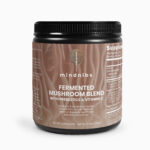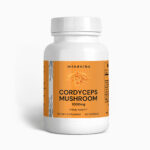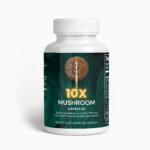
“Supplements and Pregnancy: What Every Expecting Mother Should Know”
As an expecting mother, it’s natural to want to do everything possible to ensure the health and well-being of both you and your unborn child. While a healthy diet and regular exercise are essential components of a healthy pregnancy, many women choose to supplement their nutritional intake with various vitamins and minerals. While supplements can be a valuable tool in promoting a healthy pregnancy, it’s important to understand that not all supplements are created equal. In this article, we’ll explore the benefits and risks of supplements during pregnancy, and provide you with the information you need to make informed decisions about your health and the health of your baby. So if you’re an expecting mother looking to optimize your pregnancy with the help of supplements, read on to discover what you need to know.
1. Introduction: The Importance of Proper Nutrition During Pregnancy
Proper nutrition during pregnancy is vital for the overall health of both the mother and the growing fetus. It is essential to consume sufficient quantities of nutrients, vitamins, and minerals in the diet to foster healthy fetal development. A poor diet during pregnancy can lead to a variety of complications that affect the health and well-being of both the mother and the baby. This is why every expectant mother needs to prioritize her diet and make healthy food choices.
A balanced diet during pregnancy should include plenty of fresh fruits, vegetables, whole grains, lean protein, and healthy fats. These foods are rich in essential nutrients needed for fetal growth, such as folic acid, iron, and calcium. It is also important to limit intake of certain foods that can be harmful to the baby, such as caffeine, alcohol, and unpasteurized dairy products. Moreover, regular physical activity is important so make sure to incorporate exercise into your daily routine, but don’t overdo it.
Ensuring proper nutrition during pregnancy is crucial for the long-term health of the baby. Studies have shown that poor nutrition during pregnancy can lead to a range of problems, such as low birth weight, premature birth, and developmental delays. On the other hand, a healthy diet and lifestyle can reduce the risk of pregnancy complications and improve the health of both the mother and the baby. Therefore, it is imperative for expectant mothers to prioritize their diet and make informed choices for the health and well-being of their developing baby.
2. How Supplements Can Help Support a Healthy Pregnancy
During pregnancy, the body goes through numerous changes to support the growing baby, including increased demands for nutrients. While a balanced diet is always the best way to get these vitamins and minerals, sometimes supplementation is necessary. Here are some supplements that can help support a healthy pregnancy:
Folic Acid: Also known as folate, this supplement is recommended by most physicians to help prevent birth defects in the baby’s spine and brain. While it’s possible to get enough folic acid from foods like leafy greens and fortified cereals, many women still need additional supplementation. The recommended daily dose is 400-800 micrograms.
Iron: During pregnancy, the body needs more iron to support the growth of the placenta and baby. This can lead to anemia if not enough iron is consumed. Iron supplements are often recommended for pregnant women, especially during the second and third trimesters. The recommended daily dose is 27 milligrams.
Omega-3 Fatty Acids: These healthy fats are critical for the development of the baby’s brain and eyes. Pregnant women are recommended to consume at least 200-300 milligrams of DHA (a type of omega-3) daily. While it’s possible to get these fats from foods like salmon, many women find it difficult to get enough and may benefit from supplementation.
Supplements can be a valuable tool in supporting a healthy pregnancy. However, it’s important to talk to your healthcare provider before starting any new supplements. They can help ensure that you’re getting the right dose and that there are no interactions with other medications you may be taking. Remember, a balanced diet is still the foundation of a healthy pregnancy.
3. Essential Nutrients for Expecting Mothers: Which Supplements to Consider
Expecting mothers should prioritize maintaining a healthy pregnancy by managing their diet properly and considering essential supplements. During pregnancy, the body experiences changes that make it difficult to get all the vital nutrients solely from food. Some of the nutrients required by expecting mothers are calcium, iron, folate, and omega-3 fatty acids. Here are some beneficial supplements and their benefits that you should consider:
- Folic acid: Folic acid is essential during pregnancy since it contributes to the baby’s brain and spinal cord development. Expecting mothers should start taking folic acid at least one month before conception and preferably throughout pregnancy to prevent any birth defects.
- Iron: During pregnancy, the body requires a lot of iron to produce sufficient blood to support the fetus and placenta. Mothers who lack enough iron may develop anemia, and their babies may have low body weight or preterm birth. Iron supplements are essential, especially in the second and third trimesters.
- Calcium: Calcium is crucial for healthy bone development in babies and maintaining the mother’s bone health. If you’re not getting enough calcium from your diet, consider taking a calcium supplement that includes vitamin D.
Aside from the essential supplements mentioned above, omega-3 fatty acids, and vitamin D may also lower the likelihood of premature birth and pregnancy complications. Omega-3 fatty acids, for instance, helps in the baby’s brain development and may improve the mother’s mood. However, strict attention should be paid to the source and type of omega-3 supplement for safety reasons.
Nevertheless, an expecting mother should always discuss the need for supplements with their obstetrician or other qualified medical professionals before beginning any supplementation. This will ensure that the expected mother is taking the right amount and type of supplements to avoid any adverse effects. Stick to a healthy and nutritious diet, get some exercises, and consider essential supplements to ensure a healthy and happy pregnancy.
4. Dosages and Guidelines for Supplement Use During Pregnancy
Pregnancy is an important stage in a woman’s life that demands proper nutrition and care. Taking dietary supplements during pregnancy can provide essential vitamins and minerals that are required for the growth and development of the baby. However, it is crucial to keep in mind that supplements should be taken only after consulting a healthcare provider.
The following are some guidelines regarding dosages for common dietary supplements during pregnancy:
- Folic acid: 400-800 mcg per day
- Iron: 27 mg per day
- Calcium: 1000-1300 mg per day
- Vitamin D: 600-800 IU per day
- DHA: 200-300 mg per day
It is essential to take supplements as per the recommended dosage. Overdose of any supplement can lead to adverse effects on both the mother and the baby. Also, it is advisable to opt for supplements designed specifically for pregnancy, as they contain the required nutrients in the right proportion. Additionally, consuming a well-balanced diet consisting of fruits, vegetables, grains, and protein sources can help meet the nutritional requirements of the body during pregnancy.

5. Potential Risks and Side Effects of Certain Supplements
It’s important to always be aware of potential risks and side effects when considering taking any dietary supplement. Here are some common supplements and their associated risks:
- Ephedra – commonly used for weight loss, ephedra has been linked to heart attacks, seizures, and strokes. It has even been banned by the FDA.
- Kava – often used for anxiety and stress relief, kava can cause liver damage.
- St. John’s Wort – used for depression, this supplement can interfere with prescription medication and cause dangerous drug interactions.
Other supplements may not pose as significant risks, but may still have mild side effects. For example:
- Fish oil – can cause fishy aftertaste, upset stomach, and increased bleeding risk in some individuals.
- Probiotics – may cause mild digestive issues such as gas, bloating, and diarrhea.
- Vitamin C – high doses can cause diarrhea and stomach cramps.
It’s important to always do your research and consult with a healthcare professional before taking any supplement. They can help you determine if it is safe and appropriate for you, and if any potential risks or side effects outweigh the benefits. Remember, it’s always better to be cautious and informed when it comes to your health.
6. The Importance of Consulting with a Healthcare Professional Before Taking Supplements
The role that supplements play in our daily lives cannot be overemphasized; they provide us with essential nutrients that our diets usually lack. However, taking supplements without consulting with a healthcare professional can have severe health consequences. Here, we explore the importance of consulting with healthcare professionals before taking supplements.
1. To Prevent Adverse Reactions
- Not all supplements are safe for everyone;
- Some supplements can interact with prescription medications;
- Others can cause adverse reactions such as stomach upset, nausea, or headaches.
Consulting with a healthcare professional before taking any supplements can help identify potential interactions and prevent adverse reactions from occurring. Healthcare professionals can help identify supplements that are safe and effective for you, in line with your health goals and overall health status.
2. To Avoid Nutrient Overdoses
- Supplements contain high doses of nutrients that can lead to overconsumption;
- Overconsumption can be harmful, causing severe medical problems;
- Consuming supplements alongside a nutrient-rich diet can cause overconsumption of specific nutrients, leading to nutrient toxicity.
Consulting with a healthcare professional can identify potential nutrient overdoses and mitigate their risk by regulating supplement intake alongside other nutrient sources.
3. To Maximize Supplement Effectiveness
- Supplements are highly personalized and significant individual differences in supplement absorption and efficacy exist;
- Factors such as age, gender, and body type can affect the effectiveness of different supplements;
- Individual health status such as chronic illnesses and allergies can pose limitations on supplement effectiveness.
Consulting with a healthcare professional maximizes supplement effectiveness. Professionals can provide personalized guidance on supplement selection, dosage, and administration, ensuring that supplements can better achieve your health and wellness goals.
7. Conclusion: Empowering Yourself with Knowledge for a Healthy, Happy Pregnancy
Conclusion:
The journey to a healthy, happy pregnancy is not an easy one, but it is undoubtedly one of the most rewarding experiences a woman can have. By empowering yourself with knowledge, you give yourself the best chance of having a smooth pregnancy, a healthy baby, and a happy postpartum period.
Throughout this article, we have discussed many of the key factors that contribute to a healthy pregnancy – from eating a balanced diet and staying active to getting enough rest and seeking out support when needed. However, it’s important to remember that every woman’s experience is unique, and what works for one person may not work for another.
So, above all else, listen to your body and trust your instincts. If something feels off, speak up and seek help. Remember, you are the expert on your own pregnancy, and no one knows your body better than you do. Trust yourself, and don’t be afraid to advocate for your own health and the health of your baby.
In conclusion, knowledge is power when it comes to pregnancy. By learning about the many factors that contribute to a healthy pregnancy, you can take control of your own health and empower yourself to make informed choices. Whether it’s through reading articles like this one, attending prenatal classes, or speaking with your healthcare provider, there are many ways to increase your knowledge and prepare yourself for a healthy, happy pregnancy. So start now – your baby (and your body) will thank you!
To conclude, it is important for pregnant women to discuss their supplement choices with a healthcare professional before adding anything to their daily routine. With the right guidance, expecting mothers can be confident that they are taking the correct vitamins and minerals to provide their growing baby with the sustenance it needs. Make sure to explore all of your options and take every necessary precaution so you can have a smooth and safe pregnancy.

























